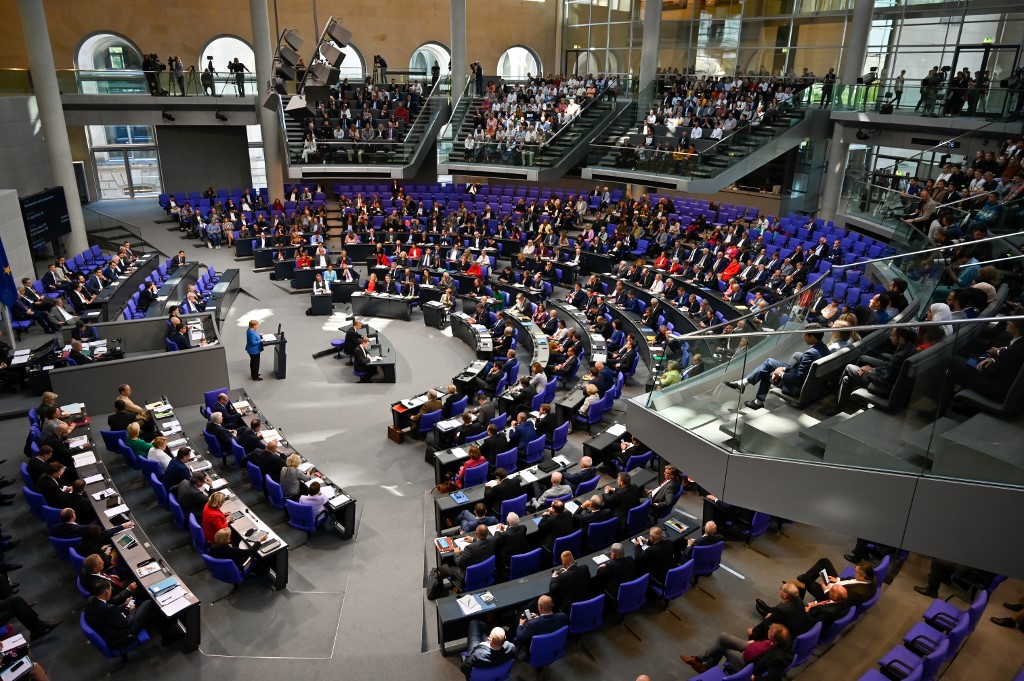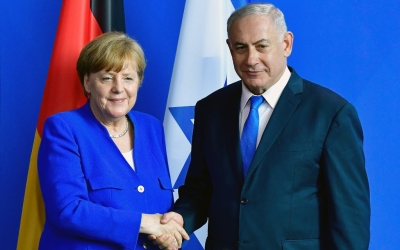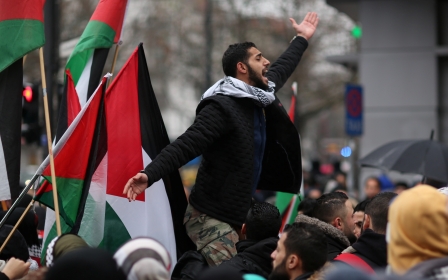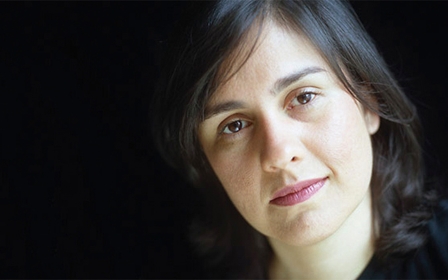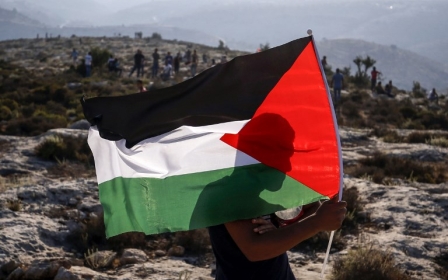Kamila Shamsie is just the latest victim of Germany's bias against Palestinians
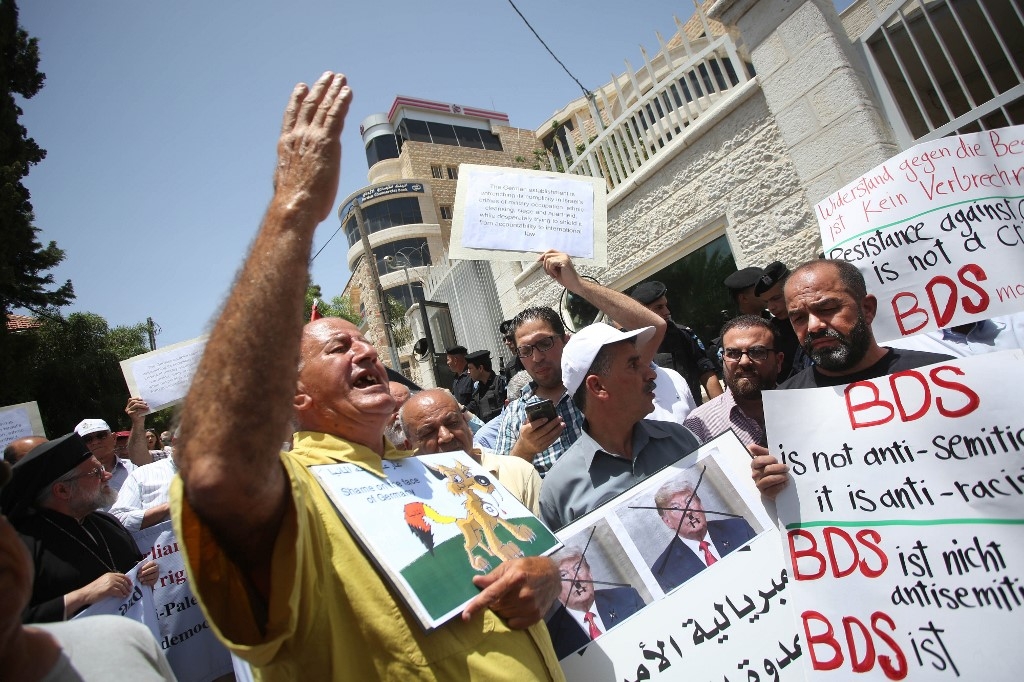
The recent decision by the German city of Dortmund to withhold a literary award from British-Pakistani novelist Kamila Shamsie because of her pro-Palestinian stance comes as no surprise.
This is not the first time such a reversal has taken place amid the Zionist lobby’s pressure in Germany. A few days ago, a public event organised by the Jewish-Palestinian Dialogue Group in Munich was cancelled because of the group’s support for Palestinian rights and the boycott, divestment and sanctions (BDS) movement. The Caritas organisation, which was to host the event, withdrew amid pressure from Munich’s Jewish community.
Silencing legitimate criticism
The event was supposed to host journalist Christoph Sydow, who has co-written investigative reports for Der Spiegel on how German-Jewish and pro-Israeli lobby organisations played a key role in the Bundestag’s recent anti-BDS resolution. This report caused a stir, prompting an aggressive attack from the pro-Israel lobby.
Sydow is not an activist, but a journalist who has done his job to reveal facts about the pro-Israel lobby. Yet, any critique can be silenced by raising the flag of antisemitism.
New MEE newsletter: Jerusalem Dispatch
Sign up to get the latest insights and analysis on Israel-Palestine, alongside Turkey Unpacked and other MEE newsletters
In Germany, this strategy always seems to work, as the pro-Israel lobby keeps (ab)using Germany’s history of genocide against the Jews to silence legitimate critiques of Israel’s ongoing violations of Palestinian rights.
While these measures should worry all human rights defenders and the pro-Palestinian movement in particular, they should first and foremost concern Germans themselves
A list put together by German activists, which I obtained, documents more than 70 events in various cities that have been cancelled over the past four years amid pressure from the Israel lobby.
This year alone, Palestinian activists Rasmea Odeh and Khaled Barakat were blocked from participating in public events in Germany; three activists were put on trial for disrupting a talk at Humboldt University by an Israeli Knesset member who supported Israel’s 2014 assault on Gaza; and the director of the Jewish Museum in Berlin, Peter Schafter, was forced to resign amid pressure from the Jewish community over a tweet critical of Germany’s anti-BDS stance.
Also this year, after the group Jewish Voice for a Just Peace in the Middle East won a peace prize from the city of Gottingen, top officials aimed to have it revoked - although the jury ultimately stuck to its decision and crowdfunded the prize.
State of fear
While these measures should worry all human rights defenders and the pro-Palestinian movement in particular, they should first and foremost concern Germans themselves.
Germans should take this moment to consider the state of fear they must confront whenever they want to express their opinions on Israel’s policies. Many Germans have privately expressed to me that they do not feel comfortable expressing themselves publicly, “because of our history”.
The subtext is that they fear losing their jobs, or being targeted by a smear campaign that could destroy their lives.
Germans speak loudly about oppressed people the world over; Palestinians are the exception. It would appear that Germany values democracy and free speech, except when it comes to Palestine. Many are simply not brave enough to stand firm against those who are stifling their freedom of speech and preventing them from living up to their values.
While this state of fear is predominant, there are still those who refuse to be silenced, and who continue to fight back - especially on the legal front.
Source of hope
Two weeks ago, the Administrative Court of Cologne instructed the City of Bonn to admit the German-Palestinian Women’s Association to the annual Bonn Culture and Encounter Festival, after the city had initially excluded the group over its support for BDS.
According to the court, the city had “not even remotely” demonstrated any justification for the exclusion.
According to the European Legal Support Centre, the decision followed two earlier rulings by the Administrative Court of Oldenburg and the Higher Administrative Court of Lower Saxony in Luneburg, which also protected the access of BDS activists to public facilities after it was initially denied by local authorities.
Though these decisions are a source of hope, legal action alone is not enough. The real fight is over the public sphere.
Germans should ask themselves the hard questions, and decide whether they are willing to keep living in a state of fear that sabotages their basic rights to free speech and thought.
The views expressed in this article belong to the author and do not necessarily reflect the editorial policy of Middle East Eye.
Middle East Eye delivers independent and unrivalled coverage and analysis of the Middle East, North Africa and beyond. To learn more about republishing this content and the associated fees, please fill out this form. More about MEE can be found here.



